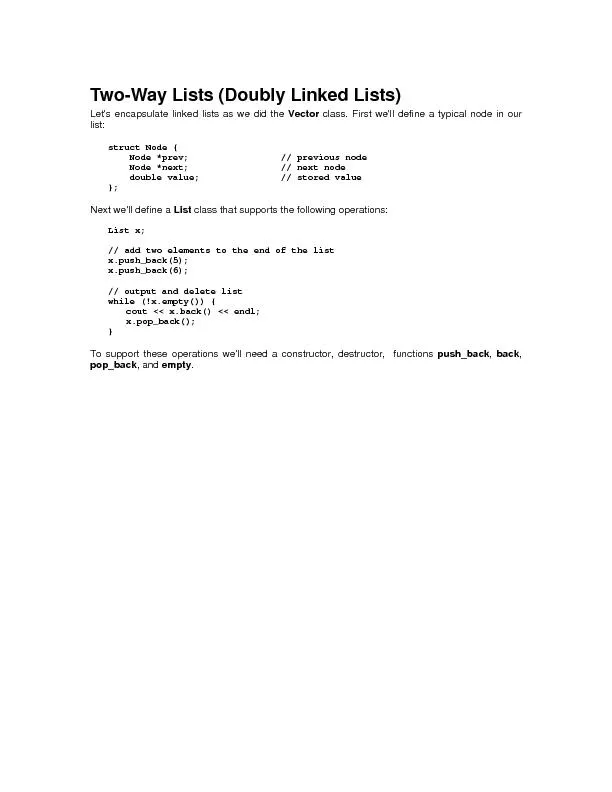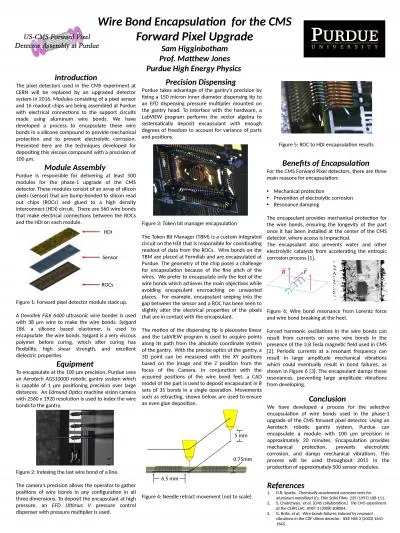PDF-Two-Way Lists (Doubly Linked Lists) Let's encapsulate linked lists as
Author : yoshiko-marsland | Published Date : 2016-03-17
class List List head new Node headnext headprev head destructor virtual List Node p headnext while p head Node next pnext delete p
Presentation Embed Code
Download Presentation
Download Presentation The PPT/PDF document "Two-Way Lists (Doubly Linked Lists) Let'..." is the property of its rightful owner. Permission is granted to download and print the materials on this website for personal, non-commercial use only, and to display it on your personal computer provided you do not modify the materials and that you retain all copyright notices contained in the materials. By downloading content from our website, you accept the terms of this agreement.
Two-Way Lists (Doubly Linked Lists) Let's encapsulate linked lists as: Transcript
Download Rules Of Document
"Two-Way Lists (Doubly Linked Lists) Let's encapsulate linked lists as"The content belongs to its owner. You may download and print it for personal use, without modification, and keep all copyright notices. By downloading, you agree to these terms.
Related Documents














